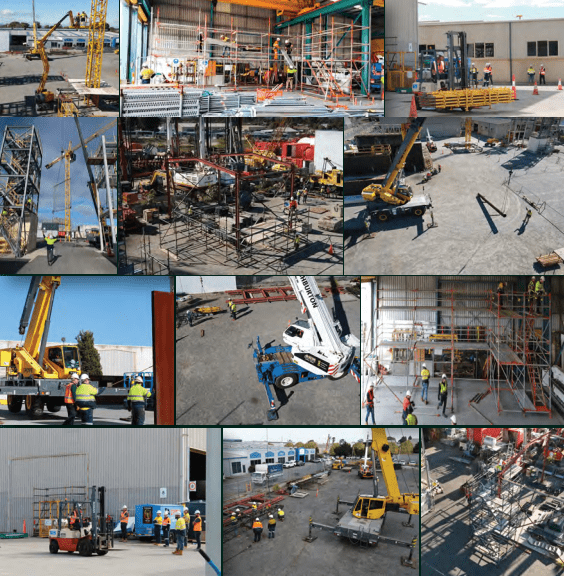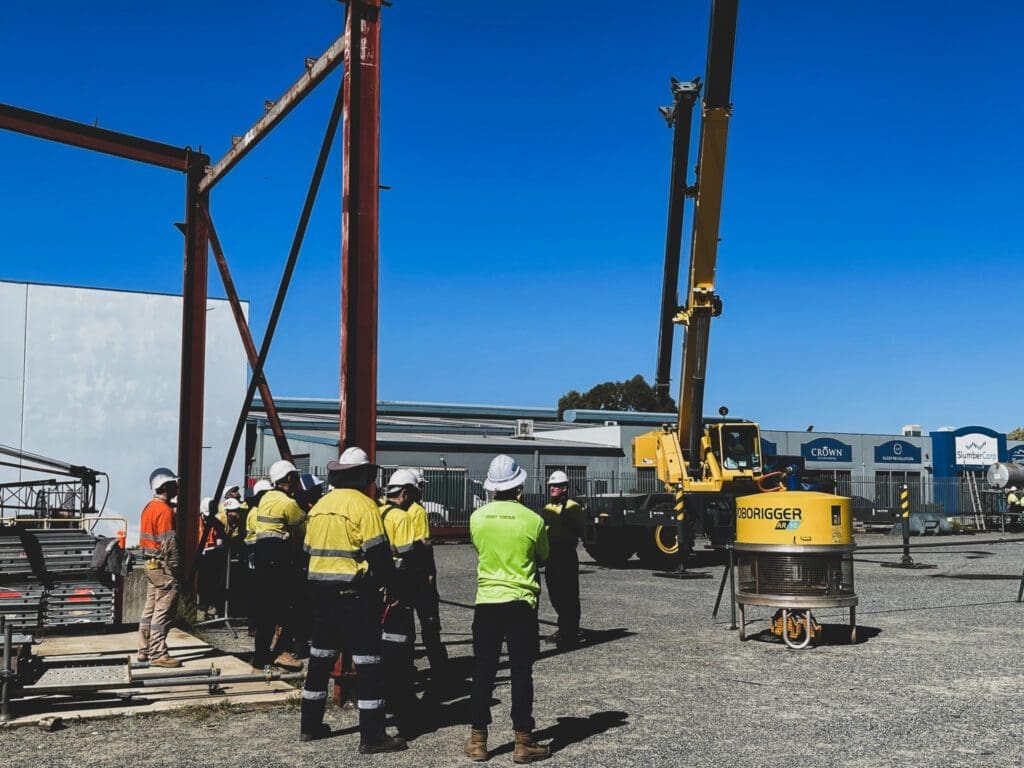
THE ROLE OF A CRANE OPERATOR
Crane operators use cranes to lift and move heavy objects at locations such as construction sites, large-scale manufacturing operations, mine sites, wharves, and other work sites. When setting up at a site, crane operators must check the condition of the ground, ensuring that it is firm and level, and for any potential obstacles, such as overhead powerlines. They must also be aware of the safe working limits of their crane, to ensure that loads are not too heavy, and that the crane’s reach is not over-extended. Crane operators often work closely with doggers, observing and following their directions to guide loads into position.
Under the WHS legislation, you must be licenced to operate cranes in Australia. A crane licence is also required if you intend to use an earthmoving machinery/mobile plant to hoist any load. Additionally, you will need to apply for a High Risk Work Licence from WorkSafe, which we can help you process.
Saferight recommends getting a nationally accredited crane ticket/qualification to ensure your team is formally trained and is fully qualified.
Licence code | Description |
CV | Vehicle loading crane with a capacity of 10 metre tonnes or more |
CN | Non slewing mobile crane with a capacity exceeding 3 tonnes |
CO | Slewing mobile crane with a capacity over 100 tonnes |
C1 | Slewing mobile crane with a capacity of 100 tonnes or less |
C6 | Slewing mobile crane with a capacity of 60 tonnes or less |
C2 | Slewing mobile crane with a capacity of 20 tonnes or less |
Crane Operator – Nationally Accredited Crane Tickets
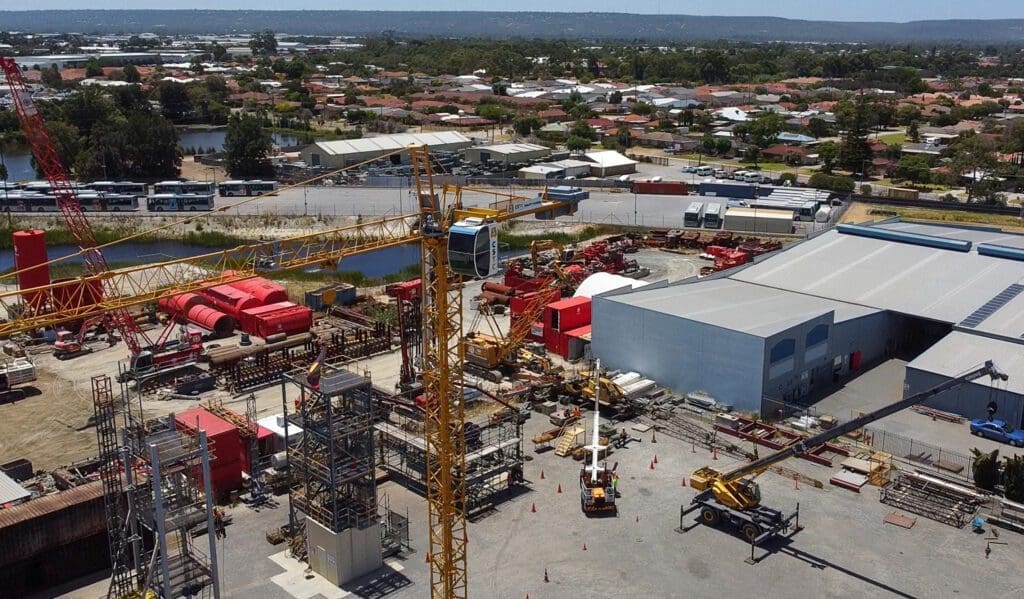
SELF-ERECTING TOWER CRANE (CS) AND TOWER CRANE (CT)
There are 2 main tower crane licence classes:
NON-SLEWING MOBILE CRANE LICENCE
Franna cranes are also commonly referred to as “taxi” cranes, as they can pick up and carry heavy loads across a worksite.
Their popularity stems from their versatility and multipurpose use, which allows them to be used in a variety of settings, such as construction sites, workshops, plant sites and mines.
The Franna crane was a different design to what the construction industry was used to; it offered a similar lifting capacity to “tractor cranes” but provided far more visibility for the crane operator, with the driver’s cab located at the front of the crane.
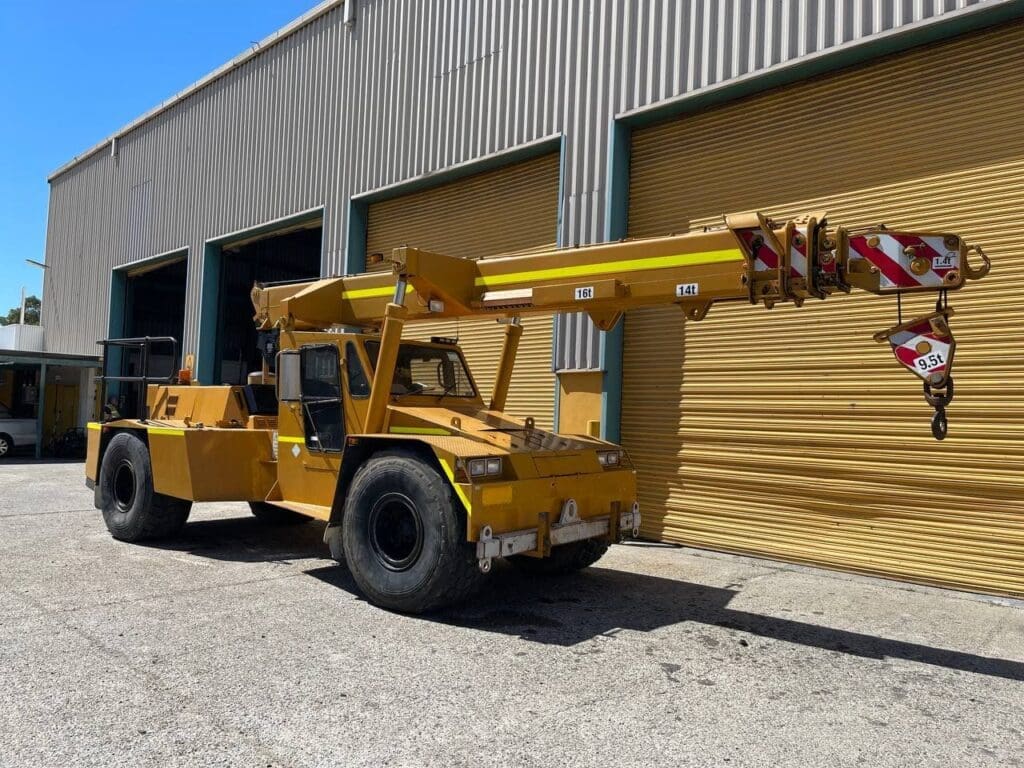
By positioning the cab at the front of the crane, David Francis had designed a crane that did more than just lift supplies high or from side to side; the crane could be driven on every day roads to transport goods and equipment.
Franna crane company founder David Francis creatively conned the term “Franna” cranes by combining two names – his own name and the name of his daughter Anna.
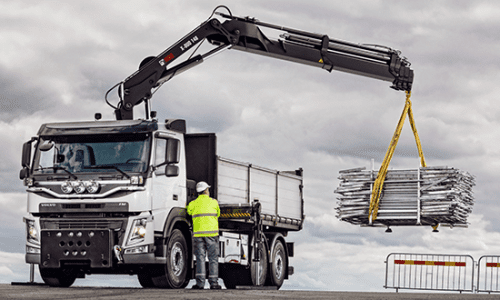
VEHICLE LOADING CRANE LICENCE
A vehicle loading crane is a crane mounted on a vehicle for the purpose of loading and unloading that vehicle. Vehicle loading cranes are also commonly referred to as a ‘HIAB” crane. With the introduction of larger capacity vehicle loading cranes and proportional control (the ability to operate multiple crane functions simultaneously), they are also used for more traditional crane operations where the load is lifted.
From the vehicle to an elevated area at a workplace, for example lifting packs of timber from the vehicle directly to a building floor
Both to and from locations remote from the vehicle on which the crane is mounted, and
Into place and held while it is connected to a structure e.g. installing a sign.
SLEWING MOBILE CRANE LICENCE – ALL CLASSES
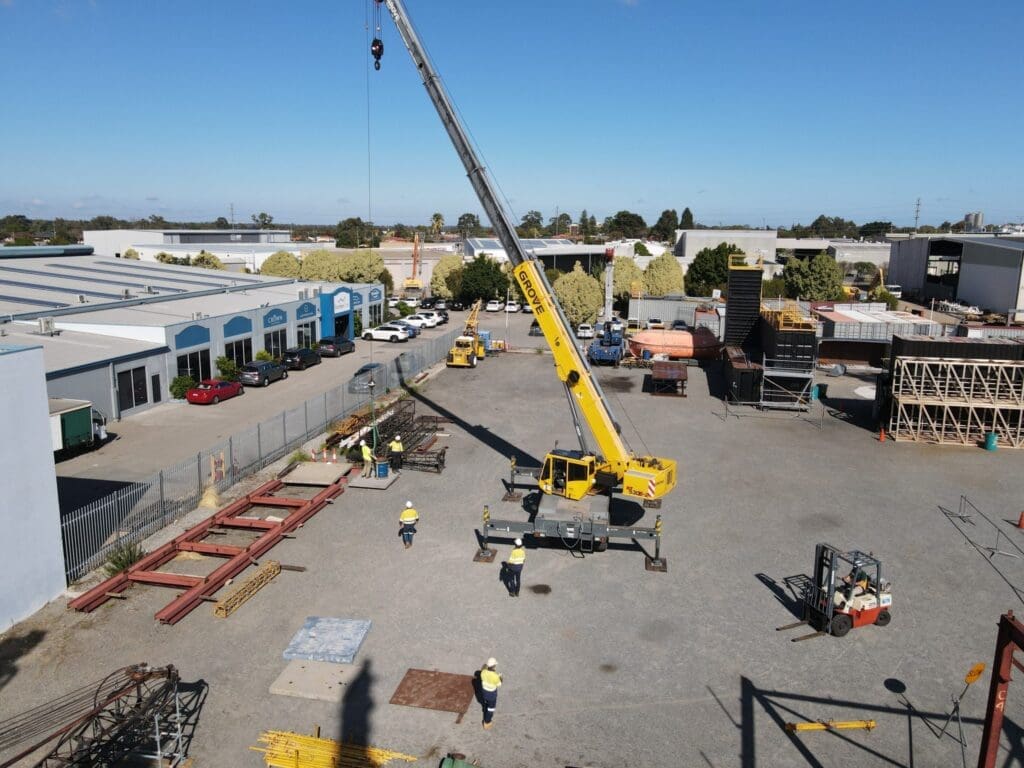
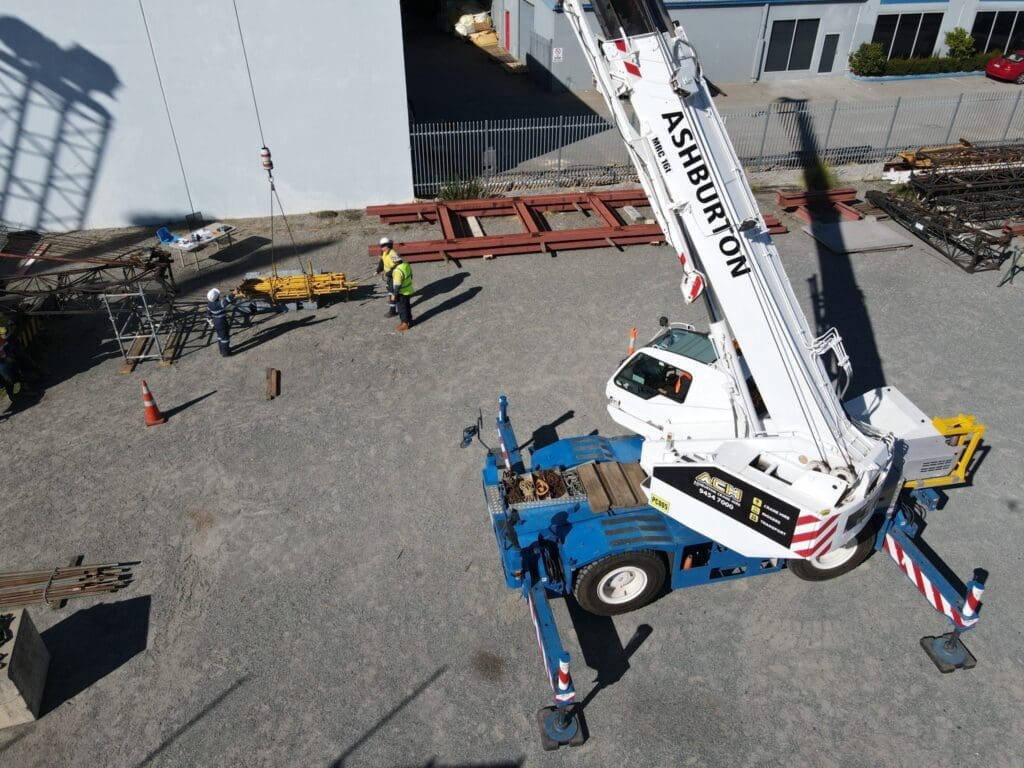
CRANE LICENCE ENCOMPASSMENTS
According to WHS legislations, below is a summary of high-risk class work according to the individual licence class. Depending on the licence class, a crane operator can operator other cranes in different classes.
- CO licence encompasses the CV, CN, C2, C6 and C1 licences.
- C1 licence encompasses the CV, CN, C2 and C6 licences.
- C6 licence encompasses the CV, CN and C2 licences.
Source: Work Health and Safety (General) Regulations 2022 Regulations, Schedule 3 High Risk Work Licences and Classes of High Risk Work (Austl)
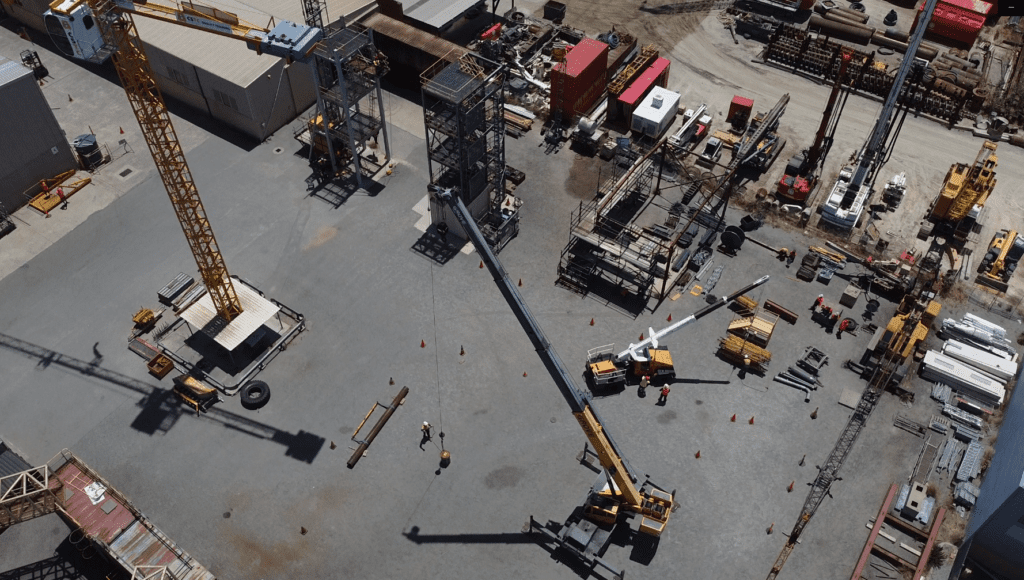
TRAIN WITH SAFERIGHT
Saferight (RTO Code 5722) offers a range of Crane Training Courses in Perth designed for multiple environments including construction, mining, emergency and the working at heights industry. All of Saferight’s Crane Training Perth courses are in accordance with the www.training.gov.au to learn skills and acquire a license to work in situations that require proficiently and safely operating a Crane.
The courses are divided into different levels and categories specifically designed for students, new professionals, and those that require a refresher. All include theoretical and practical lessons such as obtaining site information and elements related to the tasks, identifying hazards and potential hazards within the environment, and using appropriate communication methods with crane operators and other appropriate personnel.
The assessment will follow a practical application of all lessons learned and experiences acquired to ensure the quality of knowledge and skills acquired throughout the course. Upon successfully completing the Crane Operator Training Courses, you will be issued with a Nationally Recognised Statement of Attainment as well as the corresponding crane operator ticket in Perth.
If you wish to pursue other training courses together with Crane operations, browse online and book your preferred schedule.
Saferight offers a range of crane operator tickets such as:
- CPCCLTC4001 – Licence to Operate a Tower Crane
- CPCCLTC4002 – Licence to Operate a Self-Erecting Tower Crane
- TLILIC0002 – Licence to operate a vehicle loading crane (capacity 10 metre tonnes and above)
- TLILIC0008 – Licence to Operate a Non-Slewing Mobile Crane (Greater than 3 Tonnes Capacity)
- TLILIC0013 – Licence to Operate a Slewing Mobile Crane (Up to 60 tonnes)
- TLILIC0014 – Licence to Operate a Slewing Mobile Crane (Up to 100 Tonnes)
- TLILIC0015 – Licence to Operate a Slewing Mobile Crane (Over 100 Tonnes)
Other High Risk Courses offered at Saferight:
Rigging:
Scaffolding:
All high-risk training courses and Crane Operator Training courses are conducted in our high-risk training facility in Welshpool, Western Australia, where we have the latest equipment and the most experienced facilitators to train groups and individuals.
As a Registered Training Organisation (RTO Code 5722), we offer Nationally Accredited training courses, including operating different types of Cranes for construction or maintenance. With over 32 years of industry experience, and our standing within the local community, we firmly believe that you won’t find a more qualified or better-recognised trainer for Crane Operations in Perth.
We conduct our safety training sessions at our dedicated facilities, but we can also arrange to bring the training to your facility. Call us toll-free on 1800 352 335 to arrange Crane Training sessions for your team or contact us via our website to request more information.
